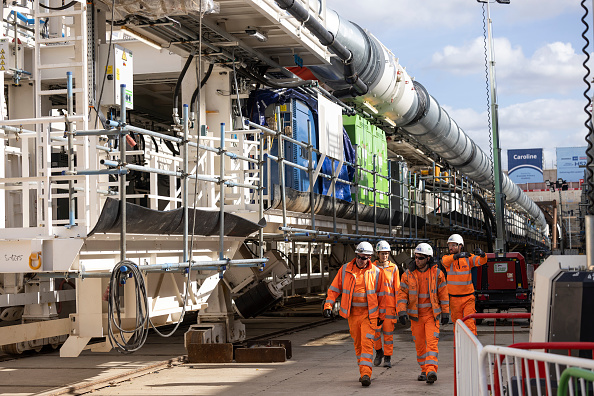Explainer: Another problem with HS2

Britain is a country of many things, but right now, its railway is known for all the wrong reasons. On top of the strikes that make it impossible to plan a trip anywhere in the country – or to know whether you’ll manage to catch your flight from Stansted – the HS2 is back on the agenda. And that’s never a good sign.
The high-speed rail project of everyone’s nightmares was meant to be a revolutionary connection between the capital, the Midlands and the north. Instead, it’s been sucking the money out of the government’s back pockets for as long as we can remember. Now, the government refused to confirm whether the line will actually reach central London or not. The original project selected Euston station as the last stop for the train. But because of rising costs, the terminus could be delayed until 2038 or scrapped altogether.
Instead, passengers would have to get off at a West London location in the suburbs and hop on the Elizabeth Line to get into central London. This change to the plan could save billions – but it’s easy to see how a train connecting London to the rest of the country that doesn’t reach London misses the point. At a speech at Bloomberg this morning, Jeremy Hunt played down rumours of another change to HS2. But he gave himself some wiggle room, saying he doesn’t see “any conceivable circumstance” in which the high speed network couldn’t reach Euston.
The leg connecting London and Birmingham should be ready by 2033, but the entire project could suffer a total two-to-five year delay. This is far from the first time a problem emerged with the project: the leg connecting London to Leeds was scrapped in November 2021, causing anger in the north and the Midlands. Plans were altered time and time again to balance out the costs and the feasibility of the project. The most recent number provided by the government for the cost of the full scheme is £98bn.
Inflation is making matters even worse. Subcontractors are saying they can’t complete their work without going bust because the price of everything, from steel to labour, is going up.
The government has always branded the project as an incredible opportunity for job creation and for connecting different regions of the country – in sum, a flagship example of levelling up. Given how it’s going, they’d be better off pointing somewhere else to convince an already disenchanted public that they’re doing a good job at courting voters in the north.